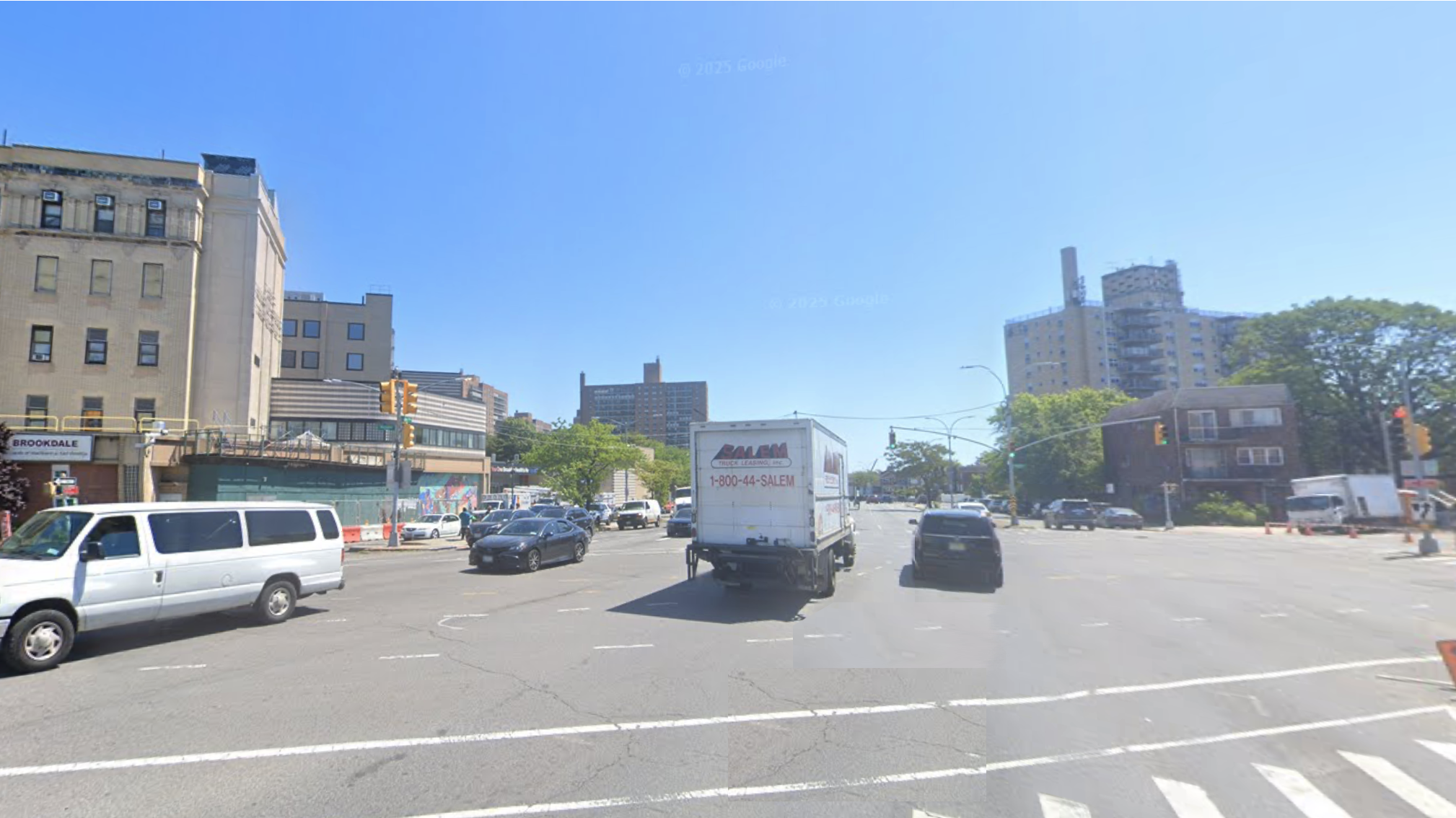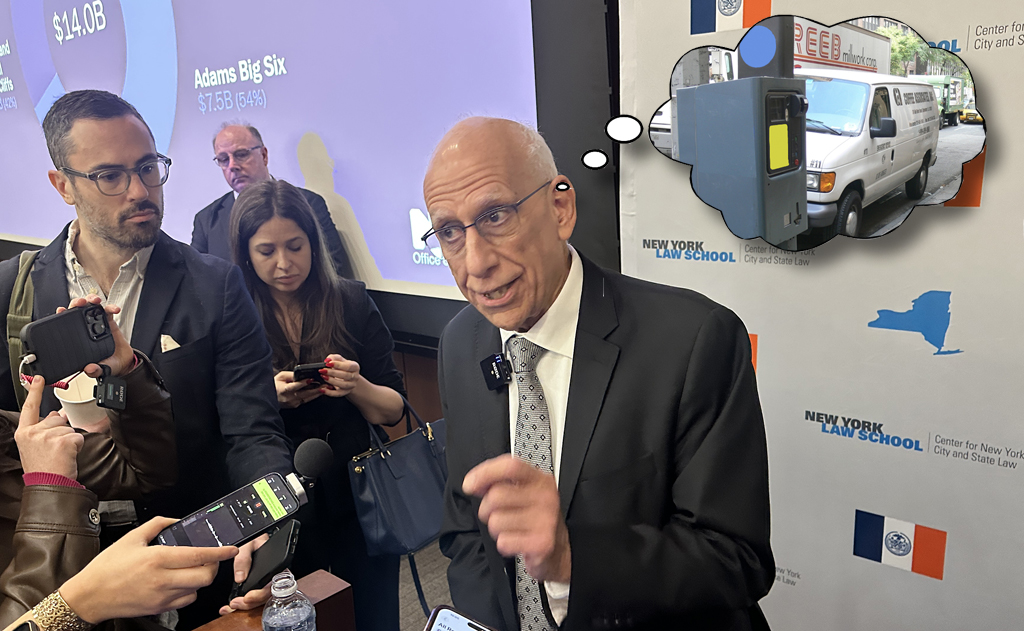Just when you thought the bike-share detractors might have run out of steam — or at least taken a time-out — along comes an intellectually muddled piece in the NY Post warning of dead bike-share users littering Midtown streets.
“Three people died in Paris’ first year of bike share. New York should heed Paris’s lesson.” That’s the ghoulish lede of Manhattan Institute transportation expert Nicole Gelinas’s “Gore de France” piece last Saturday. But despite the headline, the column can’t be dismissed as mere tabloid titillation.
For one thing, Gelinas is a thoughtful journalist — probing, numerate, and far more prone to squawk about municipal unions’ pensions than the city’s pursuit of livable streets. In an aptly titled, in-depth 2012 City Journal piece, "Ungridlocked," she lauded DOT chief Janette Sadik-Khan’s re-engineering of city streets for greater safety and efficiency, and warned the next mayor not to backtrack on the city's new bike lanes and bus lanes. “Rip out the new, pedestrian-friendly Times Square?” Gelinas wrote then. “You may as well suggest demolishing the Brooklyn-Queens Expressway.”
And there’s truth enough in Gelinas’s reminder that traffic hazards await bike-sharers. Despite a roughly three-fold drop in NYC cyclist fatality rates (deaths per cyclist), by my calculations, over the past dozen years, cycling here can morph from joy to jeopardy in the blink of an eye. Concerns that new cyclists could be placing themselves in harm’s way are reasonable enough.
But “Gore de France” misses its mark. It overhypes prospective increases in cycling deaths due to bike-share. It treats dangers that cyclists face as a separate species from dangers to pedestrians, and thus passes up a chance to advocate for traffic safety approaches that would benefit everyone, not just cyclists. Its negative slant obscures bike-share’s potential life-extending benefits from traffic-calming and healthful transportation.
Let’s start with Gelinas’s fatality forecast. She extrapolates from deaths in the initial years of Paris’s Velib program and cautions us to brace ourselves for “at least six [cyclist] deaths beyond the usual expected by the end of 2015 -- all on the cute, clunky blue bikes.” And that’s just in the Manhattan Central Business District. Gelinas’s two bike-share deaths a year in the CBD would come on top of the baseline level of two to three.
That’s a stretch, and one that may stem from the widespread tendency to underestimate just how much cycling there already is in Manhattan. I estimate that day in and day out around two-thirds of a million trips are made by bike in the five boroughs. Probably a third to a half of those start or end in the CBD. Gelinas figures that 5,500 Citi Bikes will make 27,500 trips a day, tops. If so, they'll only add around 10 percent to current bicycle travel in the CBD.
For those new trips to suffer two fatalities a year, each one would have to be nearly 10 times as perilous as a typical CBD bike trip is now. That could be, but experience in London, Washington, and Boston -- each of which, Gelinas notes helpfully, have had bike-share for a few years, with zero deaths -- suggests otherwise. Sure, Citi Bike users won’t be as battle-tested as the current biking base, but they’ll almost certainly be less aggro and more rule-abiding, especially given the “clunky” nature of the bikes.
A deeper defect of Gelinas’s approach is that it segments dangers to bicyclists from general road dangers facing everyone. Her column reinforces this artificial divide by withholding until paragraph 20 the revelation that “nearly all of the early Velib deaths involved a truck, with these large heavy vehicles making a blind right turn.” Does Gelinas not know that over the past decade this same maneuver by the same class of vehicle has probably killed a hundred New York City pedestrians, like Jessica Dworkin, the Greenwich Village artist whom a turning 18-wheeler crushed to death at Houston Street and Sixth Avenue last August?
It’s ongoing mayhem like this, and the authorities’ indifference to it, that makes mockery of Gelinas’s demand that Citi Bike kiosks advise users to “be afraid of trucks.” Wouldn’t it be more effective, as well as more ethical, to demand behavior modification by drivers who bring danger into the picture? Wouldn’t it be more productive to require vehicle operators to adhere to traffic laws rather than requiring vulnerable road users to always make the right move?
“Most of those people,” Gelinas says of the departed Velib users, “would not have been injured if they had stuck to their pre-bike way of getting around.” Maybe in Paris, but don’t tell that to NYC pedestrians, including the half-dozen or more who’ve been killed lately by drivers on sidewalks.
It’s past time for Gelinas and indeed all of us to stop obsessing over “bike safety.” Together, let’s own up to the fact that dangerous driving in all its guises -- failure to yield, driving too fast, following too closely, turning too aggressively, multi-tasking, etc. -- endangers everyone, not only cyclists. The sooner we root out traffic danger at the source, by targeting those who create it, the sooner we’ll have a city where everyone, from the Citi Bike newbie to war heroes, can finally be safe.






